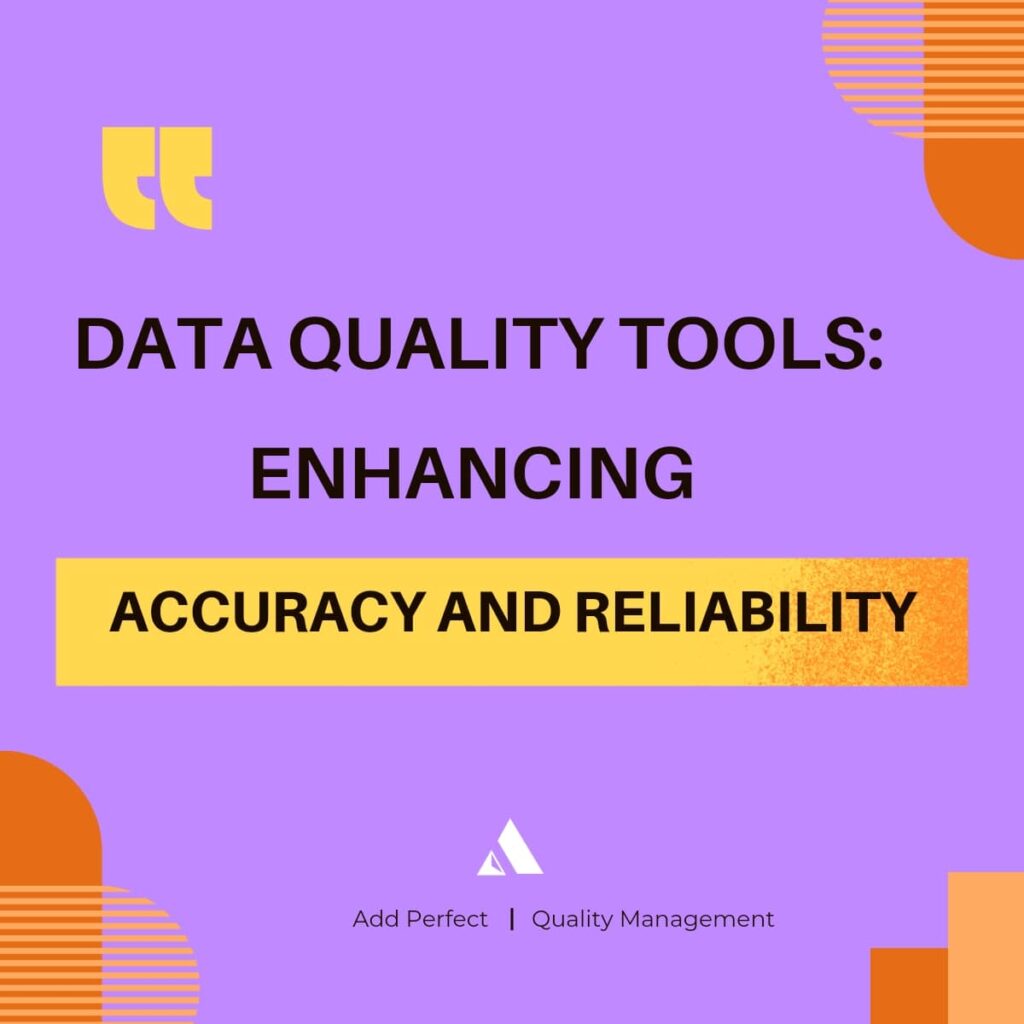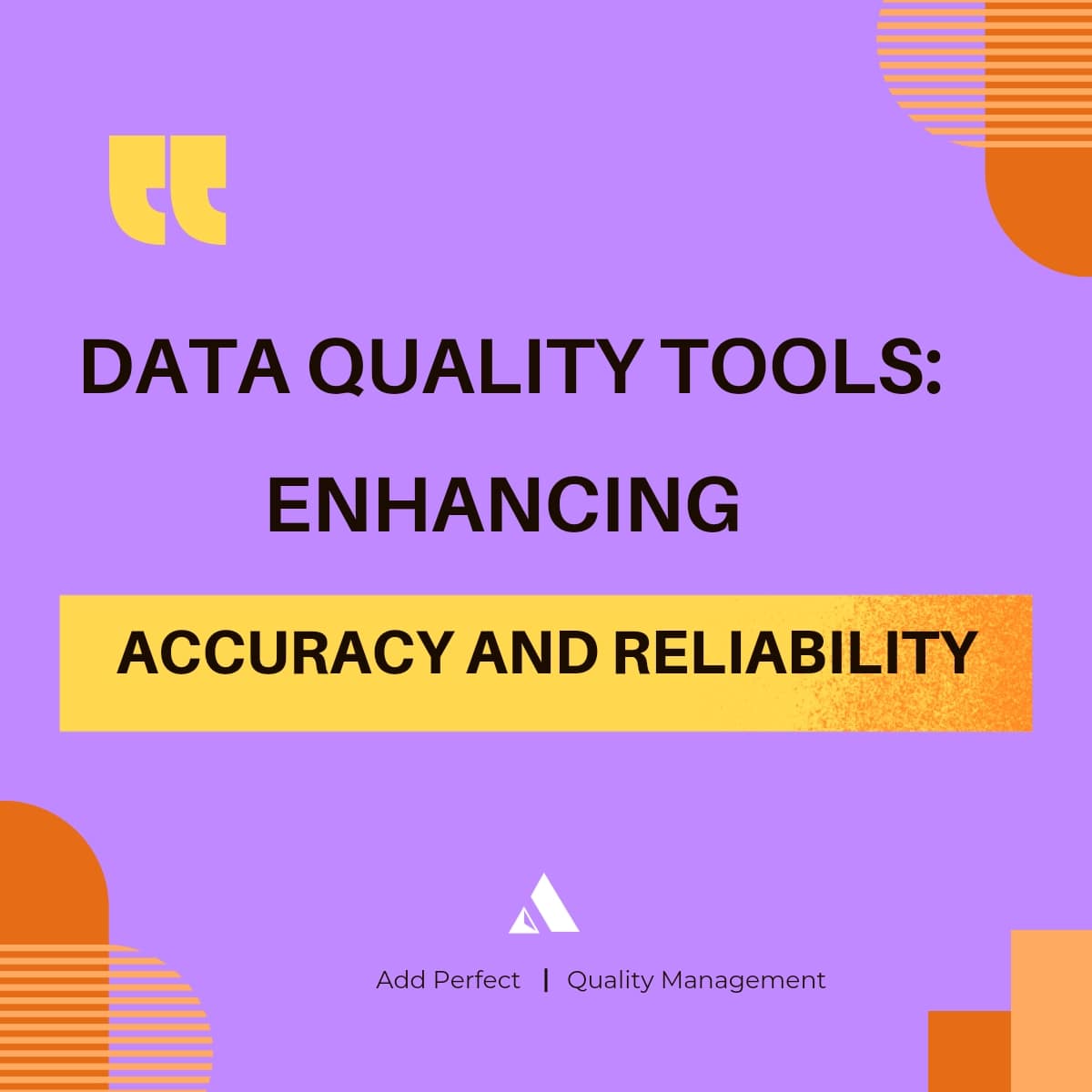In today’s data-driven world, ensuring the accuracy and reliability of data is crucial for business success. Data quality tools play a vital role in maintaining high standards of data integrity, enabling organizations to make informed decisions and achieve operational excellence. This article explores what data quality tools are, their importance, key features, and the skills required to effectively use them.

What are Data Quality Tools?
Data quality tools are software applications designed to assess, monitor, and improve the quality of data. These tools help identify and rectify errors, inconsistencies, and inaccuracies in data sets, ensuring that the data used in business processes is reliable and accurate.
Importance of Data Quality Tools
Data quality tools are essential for several reasons:
Accurate Decision-Making
- Ensuring that data used for decision-making is accurate and reliable, leading to better business outcomes.
Compliance
- Adhering to industry standards and regulatory requirements related to data accuracy and integrity.
Efficiency
- Streamlining data management processes by automating data quality assessments and corrections.
Customer Satisfaction
- Ensuring accurate customer data enhances personalized experiences and satisfaction.
Risk Mitigation
- Reducing the risk of errors and inconsistencies in data that could lead to costly mistakes.
Key Features of Data Quality Tools
Data quality tools come with various features designed to improve data integrity. Some key features include:
Data Profiling
- Analyzing data to understand its structure, content, and quality.
Data Cleansing
- Identifying and rectifying errors and inconsistencies in data sets.
Data Matching
- Identifying and merging duplicate records to ensure a single source of truth.
Data Validation
- Checking data against predefined rules and standards to ensure accuracy.
Data Enrichment
- Enhancing data quality by adding missing information or correcting inaccuracies.
Data Monitoring
- Continuously monitoring data quality to detect and address issues in real-time.
Data Governance
- Implementing policies and procedures to manage data quality across the organization.
Essential Skills for Using Data Quality Tools
Effectively using data quality tools requires a combination of technical and analytical skills. Key skills include:
Attention to Detail
- A keen eye for detail to identify errors and inconsistencies in data.
Analytical Thinking
- Strong analytical skills to interpret data and identify patterns and trends.
Problem-Solving Abilities
- Effective problem-solving skills to address data quality issues and implement corrective actions.
Technical Proficiency
- Proficiency with data quality tools and related technologies.
Data Management
- Understanding data management principles and best practices.
Communication Skills
- Clear communication skills to report findings and collaborate with other departments.
Steps to Implement Data Quality Tools
Implementing data quality tools involves a structured approach. Here are the key steps:
Assess Data Quality Needs
- Identify the specific data quality needs and challenges of the organization.
Select the Right Tools
- Choose data quality tools that best fit the organization’s requirements and budget.
Develop Data Quality Policies
- Establish clear policies and procedures for maintaining data quality.
Implement Data Quality Tools
- Deploy the selected data quality tools and integrate them with existing systems.
Monitor and Evaluate
- Continuously monitor data quality and evaluate the effectiveness of the tools.
Continuous Improvement
- Foster a culture of continuous improvement by regularly reviewing and updating data quality practices.
Industry Applications of Data Quality Tools
Data quality tools are essential across various industries, each with unique data challenges and requirements. Here’s a look at how these tools are applied in different sectors:
Finance
- Ensuring accurate financial data for reporting, compliance, and decision-making.
Healthcare
- Maintaining accurate patient records and ensuring data privacy and compliance.
Retail
- Managing customer data to enhance personalized marketing and improve customer experiences.
Telecommunications
- Ensuring accurate billing and customer information.
Manufacturing
- Managing supply chain and production data for efficiency and quality control.
Government
- Maintaining accurate records for public services and compliance.
Education
- Managing student data and academic records for accuracy and reporting.
Trends and Innovations in Data Quality Tools
The field of data quality tools is continually evolving, with new trends and technologies shaping the industry. Here are some notable trends:
AI and Machine Learning
- Implementing AI and machine learning algorithms to enhance data quality assessments and predictions.
Big Data Integration
- Integrating data quality tools with big data platforms to handle large volumes of data.
Cloud-Based Solutions
- Utilizing cloud-based data quality tools for scalability and flexibility.
Real-Time Data Quality
- Ensuring data quality in real-time to support immediate decision-making.
Data Quality as a Service (DQaaS)
- Offering data quality tools as a service to provide easy access and lower upfront costs.
Overcoming Challenges in Data Quality
Implementing data quality tools can be challenging. Common challenges include:
Data Silos
- Overcome data silos by integrating data from various sources into a unified system.
Resource Constraints
- Address resource constraints by prioritizing initiatives with the greatest impact and seeking external support.
Complex Data Environments
- Manage complex data environments by leveraging advanced data quality tools and technologies.
Sustaining Improvements
- Develop strategies to maintain improvements over the long term, such as ongoing monitoring and regular training sessions.
Conclusion
Data quality tools are vital for ensuring data accuracy and reliability, leading to better decision-making, compliance, and continuous improvement. By understanding the importance of data quality tools, implementing effective methodologies, and developing the necessary skills, organizations can significantly enhance their data management processes.
At AddPerfect.com, we aim to empower professionals and organizations with the knowledge and tools needed to maintain the highest standards of data quality. Stay tuned for more in-depth articles, expert insights, and practical guides to help you excel in your data quality journey.




you are truly a just right webmaster The site loading speed is incredible It kind of feels that youre doing any distinctive trick In addition The contents are masterwork you have done a great activity in this matter
I just could not depart your web site prior to suggesting that I really loved the usual info an individual supply in your visitors Is gonna be back regularly to check up on new posts